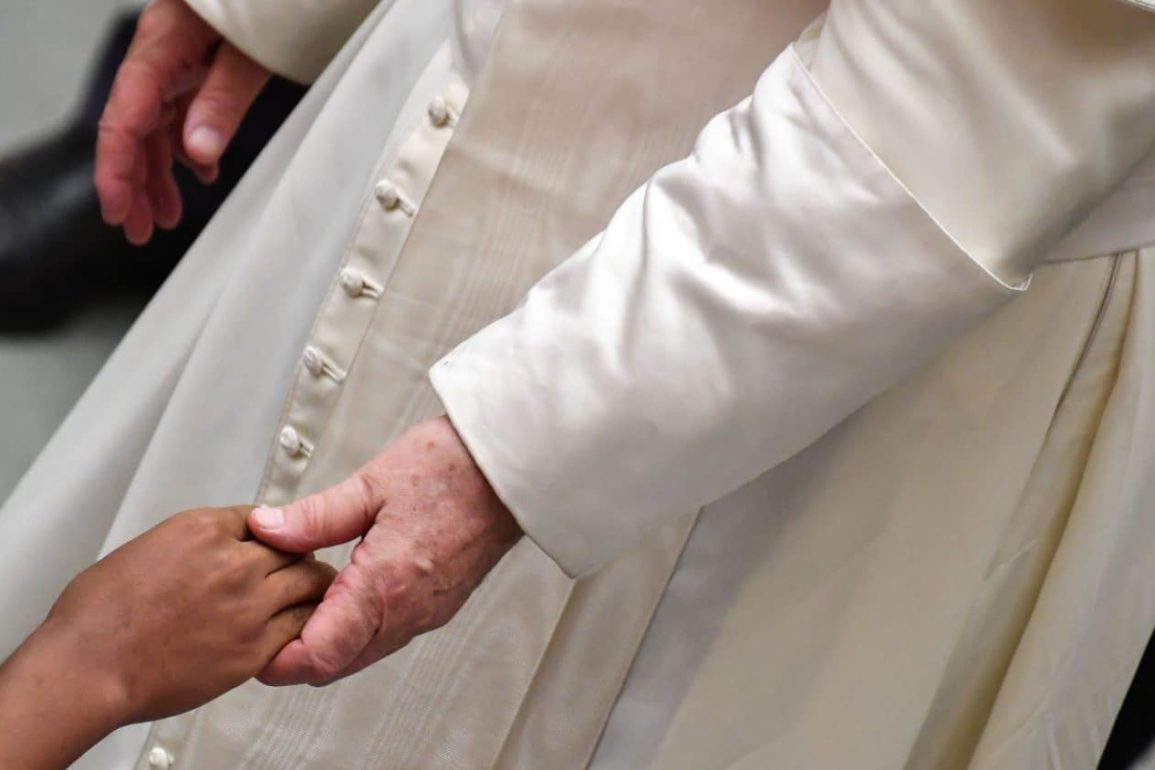“Thank you for enlightening the life and witness of the numerous priests, religious and laymen, who chose to accompany, support and help their brothers and sisters suffering from HIV and AIDS, with great risk to their profession and reputation,” said Pope Francis.
With these words, the Holy Father thanked the numerous priests, nuns, and laymen who helped AIDS and HIV patients, even putting at stake their life and reputation in the ‘80s and ‘90s, when this yet unknown virus had an almost 100% death rate.
Discreet, Silent, and Hidden Mercy
These words are taken up in a letter addressed to journalist Michael O’Loughlin, correspondent of the U.S. America magazine, author of a recently published book entitled “Hidden Mercy: AIDS, Catholics and the Untold Stories of Compassion in the Face of Fear.”
In the brief letter, Pope Francis writes: “Thank you for enlightening the life and witness of the numerous priests, religious and laymen, who chose to accompany, support and help their brothers and sisters suffering from HIV and AIDS, with great risk to their profession and reputation.”
“Instead of indifference, alienation and also condemnation, these individuals let themselves be moved by the Father’s mercy and enabled it to become their life’s work, a discreet, silent and hidden mercy, but able to support and give the life and history back to each one of us,” he added.
In his book, O’Loughlin tells the story of nurse Carol Baltosiewich, one of the first to attend to people with AIDS and to fight against those that criticized her work. The journalist, the author of the podcast Plague, decided to write to Pope Francis offering her work.
“I was spontaneously struck by what on one day we will be judged on: ‘I was hungry and you gave me to eat; I was thirsty and you gave me to drink; I was a stranger and you welcomed me; I was naked and you clothed me, sick and you visited me, imprisoned and you came to visit me,’” continued the Pontiff.
The Stigma of AIDS
As “Vatican News “ points out, the care and physical and spiritual assistance to AIDS patients forms part of the Church’s mission today, but it was not always so. In the early ‘80s, when this lethal and contagious disease was discovered in some United States patients, the social alarm was raised, which was followed by the discrimination and stigmatization of patients.
In places such as New York, where the incidence of HIV was especially high, on occasion infected people were rejected by the hospitals. This rejection affected especially the homosexuals, the population with the greatest number of those affected at that time.
This virus became known as the “gay plague’ and, consequently, homosexuals were fired from their jobs or expelled from their parishes. For many members of the ecclesiastical hierarchy, the virus was conceived as “God’s punishment for immoral sexual behavior.” This attitude lasted for years even when subsequently cases appeared of non-homosexual, drug addicts and hemophilic patients, thus giving the lie to the association between homosexuality and the disease.
Mother Teresa’s Care
In 1985, in the midst of this atmosphere, Mother Teresa, Foundress of the Missionaries of Charity, went to the Archbishop of New York to create the “Gift of Love,” an initiative geared to receive and look after seropositive people. “We started with 15 beds for the same number of patients, and the first to be hospitalized were four young men, who I was able to get out of prison because they didn’t want to die there. I had prepared a small Chapel for them so that these young men, who perhaps had never been close to Jesus or had estranged themselves from Him, could if they wished, approach Him again. Thanks be to God, little by little their hearts were softened,” said the nun.
Mother Teresa is only one of the many examples of women religious, priests, men religious, and laymen who already dedicated themselves to assist and care for patients with this virus, as is the case of Carol Baltosiewich.
Pope Francis’ Attitudes
According to “Vatican News,” Pope Francis himself, when he was Archbishop of Buenos Aires, washed the feet of 12 HIV patients on Holy Thursday in 2008. Also during his trip to Panama in 2019, on the occasion of the World Youth Day, the present Bishop of Rome visited the house of the Good Samaritan Home, which receives many seropositive people.
“The Good Samaritan, as all is houses, shows us that our neighbor is first of all someone with a concrete face and real, and not someone who must be overlooked or ignored, whatever his situation is,” said His Holiness at the time.
Translation by Virginia M. Forrester










